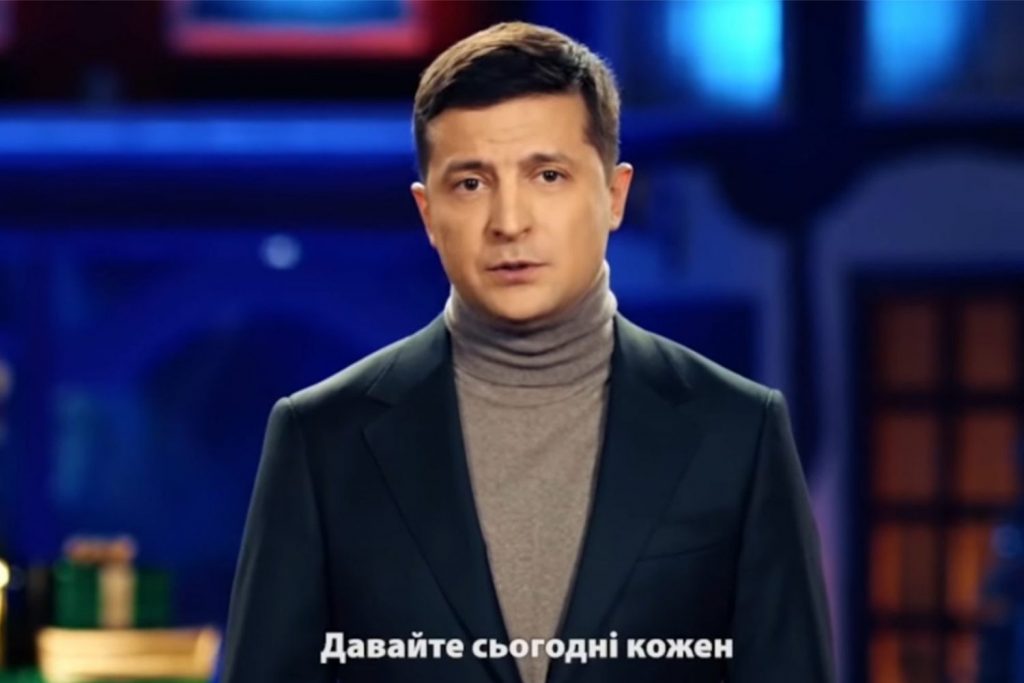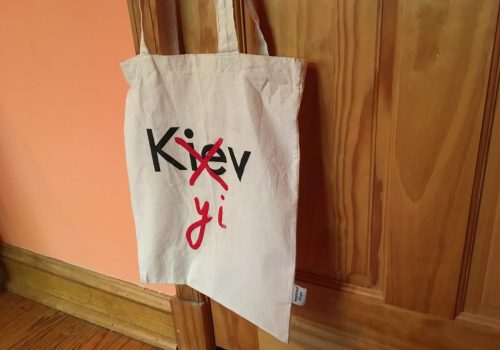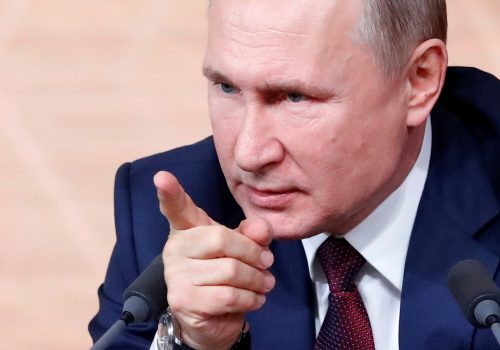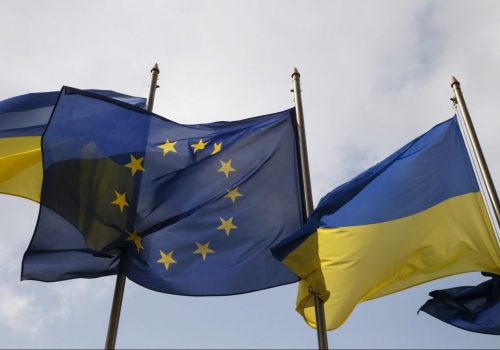President Volodymyr Zelenskyy’s New Year’s Eve address to the nation on December 31, 2019, was probably the most original ever delivered by a Ukrainian head of state. While previous presidents have typically used this formal occasion to reflect on the highs and lows of the passing year, Zelenskyy took the opportunity to appeal for national unity. In a slick holiday greeting featuring cameos from many of the country’s most famous faces, the former showman called on Ukrainians to respect one another as fellow citizens regardless of language, religion, politics, or ethnicity.
This message of a Ukraine united in diversity was in many ways strikingly modern, but Zelenskyy also invited ridicule by going on to question the importance of national symbols such as monuments and street names. “What’s the difference?” he asked. In the days that followed, these words came back to haunt him. “What’s the difference?” became a punchline, inspiring endless memes on social media as Ukrainians mocked Zelenskyy’s apparent failure to appreciate the importance for any nation of unifying totems. Holos party leader and Ukrainian rock star Svyatoslav Vakarchuk caught the mood with a poem harshly criticizing Zelenskyy’s indifference, while others argued that his stance seemed more befitting a supranational grouping such as the European Union rather than a fledgling nation-state like Ukraine.
Stay updated
As the world watches the Russian invasion of Ukraine unfold, UkraineAlert delivers the best Atlantic Council expert insight and analysis on Ukraine twice a week directly to your inbox.
Zelenskyy’s attempt to downplay the significance of national identity issues ignores the simple fact that every country must necessarily have its own national narratives complete with heroes, villains, myths and monuments. His stance also suggests he is out of touch with the public mood and the sentiments of his own voters. The Ukrainian President acts as though nothing has changed in the country during the past six years of revolution and war, and ignores the progress made towards national integration. In reality, the undeclared war with Russia has encouraged the growth of an inclusive patriotism rather than a divisive nationalism, something that is reflected in polls consistently showing negative attitudes towards the Russian leadership but not towards the Russian people.
Zelenskyy’s failure to grasp this point suggests he has yet to understand the nature of Ukraine’s struggle for an independent identity against a Russia still stuck in denial about Ukrainian separateness. This should not come as a total surprise. Throughout the three seasons of his hit political satire “Servant of the People”, Zelenskyy studiously avoided the subject of Russia, despite the fact that the show aired from 2015 to 2019 against a backdrop of war. Instead, the focus was placed firmly on exaggerated divisions within Ukrainian society. This created the impression that Zelenskyy viewed the war primarily as an internal conflict, whereas three-quarters of Ukrainians blame the Kremlin and regard Russia as the aggressor.
Opinion polls consistently show that Zelenskyy’s own supporters overwhelmingly hold Russia accountable and do not believe peace is possible as long as Vladimir Putin remains in the Kremlin. According to a survey conducted in the wake of the 2019 parliamentary elections by the authoritative Razumkov Centre, just 4.6% of Zelenskyy voters thought improving relations with Russia should be a priority for the new government, while 73% opposed granting special status to the Russian-occupied regions of eastern Ukraine. As the Razumkov Centre pointed out, Servant of the People voters “differ little in their views from Ukrainian citizens as a whole.”
The opinions of Zelenskyy’s voters tally closely with those of the country’s other three pro-European parliamentary parties (Batkivshchina, European Solidarity and Holos) on key identity issues such as support for Ukrainian as the single state language. According to a summer 2019 survey conducted by the International Republican Institute, clear majorities among Zelenskyy voters also back Ukraine’s bids for EU and NATO membership, with levels of support at 63% and 52% respectively. Meanwhile, there is scant evidence of any enthusiasm for a Russian reunion, with just 11% among Servant of the People voters favoring future membership of the Moscow-led Eurasian Economic Union.
Eurasia Center events

Not everything is uniform among Ukraine’s pro-European parliamentary parties, which collectively account for 325 of the 424 seats occupied in the current parliament. Voters who support the more centrist Servant of the People and Batkivshchina parties hold similar views on issues of identity, the war with Russia, and European integration, while those who back European Solidarity and Holos are more to the right of the political middle ground. Despite minor differences, however, these four political forces broadly agree on all the big issues. Crucially, they also dwarf the Opposition Platform, which now serves as the last remaining stronghold of pro-Russian sentiment in the country with just 43 MPs. This raises the question of why Zelenskyy feels it necessary to preach unity to an electorate that shows increasingly few indications of any fundamental disagreements.
It could be that Zelenskyy is simply behind the times. Over the past six years, Putin’s war against Ukraine has advanced the cause of national integration and fostered a growing sense of consensus on what were previously divisive identity and foreign policy issues. The elections of 2019 underlined how the war has tipped the balance decisively towards Euro-Atlantic rather than Eurasian integration. Support for this westwards trajectory has spread from western and central Ukraine to the south and east of the country, taking root in what were once staunchly pro-Russian regional capitals such as Dnipro, Zaporizhia, and Kherson. Indeed, in electoral terms, the “eastern” side of Ukraine’s much-hyped east-west divide has shrunk dramatically in size since 2014 and is now reduced to the two Donbas regions currently under partial Russian occupation. President Zelenskyy may not have noticed, but his New Year’s Eve wish for national unity may already have come true.
Taras Kuzio is a non-resident fellow at the Foreign Policy Institute at Johns Hopkins-SAIS and a professor at the National University of Kyiv Mohyla Academy. He is also author of “Putin’s War Against Ukraine” and co-author of “The Sources of Russia’s Great Power Politics: Ukraine and the Challenge to the European Order”.
Further reading
The views expressed in UkraineAlert are solely those of the authors and do not necessarily reflect the views of the Atlantic Council, its staff, or its supporters.

The Eurasia Center’s mission is to enhance transatlantic cooperation in promoting stability, democratic values and prosperity in Eurasia, from Eastern Europe and Turkey in the West to the Caucasus, Russia and Central Asia in the East.
Follow us on social media
and support our work
Image: Ukrainian President Volodymyr Zelenskyy delivers his New Year's Eve address to the nation on December 31, 2019 (Screenshot)




